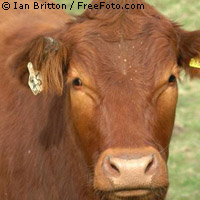Stakeholders call for more research into animal vaccines
Vaccines have an important role to play in maintaining animal health in Europe, and more research is urgently needed to develop safe, effective vaccines against both new and existing diseases. This was the overriding message from a European Parliament hearing on the community animal health strategy and vaccine technologies, which took place on 13 February. The motto of the strategy, which the Commission launched in September 2007, is 'prevention is better than a cure'. Its overall aim is to limit the threats to animal and public health while improving animal welfare and the competitiveness of Europe's farms - dealing with disease outbreaks in a reactive way costs more money than preventing them from happening in the first place. One of the four 'pillars' of the strategy is dedicated to research and innovation. As many of the speakers pointed out, vaccines have already helped us eliminate or at least drastically reduce the incidence of a number of diseases. Smallpox, the first disease for which a vaccine was developed, has been successfully eradicated, and polio is likely to follow. In the animal world, rinderpest, which was widespread as recently as the early 1980s, is now restricted to a few cases in Somalia, and the Food and Agriculture Organisation (FAO) of the UN hopes it will be wiped out by 2010. However, the emergence of new diseases and the re-emergence of existing diseases, as well as climate change and increasing trade volumes, mean that new vaccines and strategies for reducing the spread of these diseases are urgently needed. New approaches to vaccine development are also required. As Jennifer Rice of Dow AgroSciences pointed out, we are still some way from producing the ideal vaccine. As well as being effective and safe, the ideal vaccine should be cost-effective and stable, and not require refrigeration. Furthermore, with an ideal vaccine, it should be possible to differentiate between a vaccinated animal and an infected animal. There are already a number of EU-funded projects dedicated to animal health and vaccine development, covering issues as diverse as foot and mouth disease, swine fever, bluetongue and bird flu as well as pathogens affecting bees, fish and molluscs. The Seventh Framework Programme (FP7) provides funding for research into animal health through the 'Food, agriculture and fisheries, biotechnology' theme. There is also a technology platform dedicated to animal health called ETPGAH (the European Technology Platform for Global Animal Health). ETPGAH brings together scientists, industry representatives, farmers, vets, welfare groups and international organisations such as the FAO. Together, these stakeholders have developed a Strategic Research Agenda that highlights the key areas for action. In the coming years, the platform aims to ensure that all relevant research in Europe is aligned to the European action plan. ETPGAH is also behind the new DISCONTOOLS project, which has been earmarked for funding under FP7. This project aims to create a public database bringing together the latest information on a range of animal diseases. The partners will also carry out an analysis of the major gaps in our ability to control diseases and identify the diseases which are the highest priority, something the project partners admit will inevitably lead to controversy. They also hope to investigate the technologies being developed in other fields, such as human health, nanotechnology and biotechnology, so as to identify tools which could be applied in the animal health field. The importance of international cooperation was also highlighted at the event, with many speakers noting that as diseases do not respect boundaries, neither should research funding. ETPGAH already has partners from around the world, and plans to devote more attention to these in the future.



